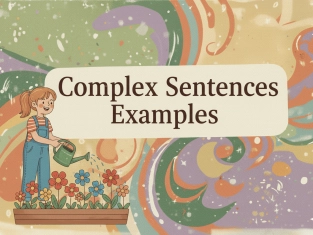Reported Speech
Table of Contents
Exercises
Explanation
Direct speech: Olivia said, “I’m late.”
Reported speech: Olivia said she was late.
Basic Rule
When we report what someone said, we usually move the verb one tense back in time and change pronouns or time words if needed. This is called backshifting.
Examples
|
Direct Speech |
Reported Speech |
|
“I’m hungry,” Ben said. |
Ben said he was hungry. |
|
“We’re learning English,” they said. |
They said they were learning English. |
|
“I can drive,” she said. |
She said she could drive. |
Tense Changes (Backshift)
|
Direct Speech |
Reported Speech |
|
Present Simple → Past Simple |
“I live here.” → He said he lived there. |
|
Present Continuous → Past Continuous |
“I’m reading.” → She said she was reading. |
|
Present Perfect → Past Perfect |
“I’ve finished.” → He said he had finished. |
|
Past Simple → Past Perfect |
“We met yesterday.” → They said they had met the day before. |
|
Will → Would |
“I’ll call you.” → She said she would call me. |
If the reporting verb is in the present tense, you don’t need to change the tense:
She says she likes her job.
Changing Pronouns
We change pronouns to match the new speaker and listener.
“I love this song,” Emma said. → Emma said she loved that song.
“You are my best friend,” he told me. → He told me I was his best friend.
“We will help you,” they said. → They said they would help me.
Time and Place Words
|
Direct Speech |
Reported Speech |
|
today → that day |
“I’ll do it today.” → He said he’d do it that day. |
|
tomorrow → the next day |
“See you tomorrow.” → She said she’d see me the next day. |
|
yesterday → the day before |
“I called you yesterday.” → He said he’d called me the day before. |
|
now → then |
“I’m busy now.” → She said she was busy then. |
|
here → there |
“I work here.” → He said he worked there. |
Reporting Different Sentence Types
Statements
Use say or tell.
“I’m moving next month,” she said. → She said she was moving the next month.
“We’ll call you soon,” they told me. → They told me they would call me soon.
Yes/No Questions
Use ask if or ask whether (no question word order).
“Do you like pizza?” she asked. → She asked if I liked pizza.
“Have you been here before?” he asked. → He asked whether I had been there before.
Wh- Questions
Use the same question word (what, where, why, etc.), but word order becomes normal.
“Where do you live?” she asked. → She asked where I lived.
“Why are you crying?” he asked. → He asked why I was crying.
Commands and Requests
Use tell, ask, order, or advise + to + verb.
“Sit down,” the teacher said. → The teacher told us to sit down.
“Please be quiet,” she said. → She asked us to be quiet.
“Don’t touch that!” he said. → He told me not to touch that.
Offers, Promises, and Suggestions
“I’ll help you,” he said. → He offered to help me.
“I’ll send the file,” she said. → She promised to send the file.
“Let’s have lunch,” he said. → He suggested having lunch.
Common Reporting Verbs
|
Verb |
Use |
Example |
|
say |
report words |
She said she was tired. |
|
tell |
say to someone |
He told me he was late. |
|
ask |
make a question or request |
She asked if I was okay. |
|
offer |
express willingness |
He offered to drive us. |
|
promise |
give assurance |
She promised to call. |
|
suggest |
give an idea |
He suggested watching a movie. |
Quick Summary
|
Direct Speech |
Reported Speech |
|
“I’m happy.” |
She said she was happy. |
|
“Will you help me?” |
He asked if I would help him. |
|
“Don’t run!” |
The teacher told us not to run. |
|
“Let’s go out.” |
She suggested going out. |
Tip
If the reporting verb is in the present (She says), the tense stays the same. If it’s in the past (She said), move the tense one step back.
She says she likes cats.
She said she liked cats.
Reported speech helps you tell stories, share news, and describe conversations clearly. You’ll use it a lot in real English — it’s simple once you know the pattern!

